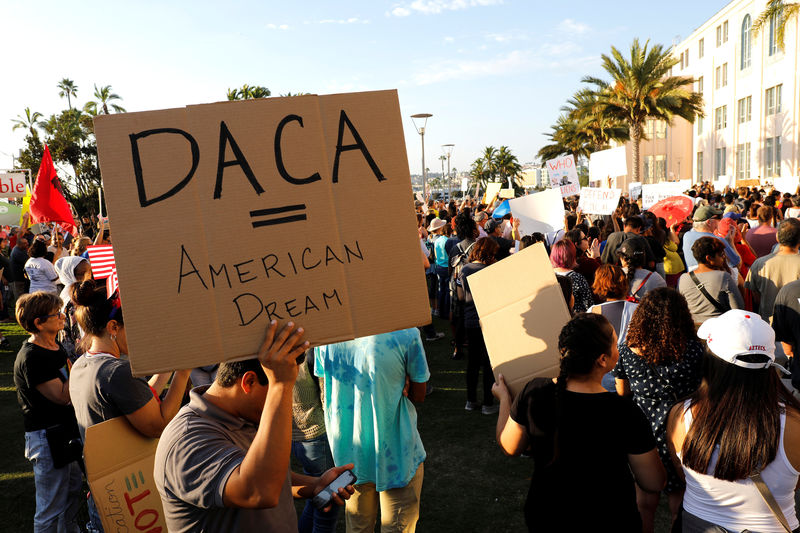By Dan Levine
SAN FRANCISCO (Reuters) - A U.S. judge on Thursday said he wanted to decide quickly lawsuits challenging the Trump administration's decision to end a program that shielded from deportation children brought to the United States illegally by their parents.
President Donald Trump this month decided to rescind the Deferred Action for Childhood Arrivals program, or DACA, in March 2018. Since it was authorized in 2012 by President Barack Obama, the program has provided protection from deportation and the right to work legally to nearly 800,000 young people.
Several states, organizations and individuals have filed lawsuits seeking to protect DACA recipients known as Dreamers.
At a hearing in San Francisco federal court, U.S. District Judge William Alsup grouped four of those cases together, including a lawsuit filed by California's attorney general and six individual Dreamers. Legal briefs for many of the issues could be finished by December, he said.
"I don't like the idea that we're fiddling while Rome burns and then suddenly the program is expired," Alsup said.
The legal claims in all of the cases are similar: That the Trump administration did not follow proper administrative procedure in rescinding DACA, and that making enforcement promises to a group of people, only to revoke them, violates due process.
The Trump administration has said it is ending DACA because Obama overstepped his constitutional authority when he bypassed Congress and created the DACA program unilaterally. Trump called on Congress to enact a law to protect DACA recipients and last week angered some of his fellow Republicans by negotiating with top congressional Democratic leaders on possible legislation.
During the 2016 presidential election, Trump ran on a hardline immigration platform, promising to end DACA and strengthen border protections to increase jobs for U.S. workers.
Dreamers with work permits that expire before March can apply to renew them for another two years if they do so before Oct. 5. The Department of Homeland Security might extend that date.
In court on Thursday, Deputy Assistant Attorney General Brett Shumate said the government still had not made a decision on the deadline.

Shumate also said the Trump administration has not changed Obama-era restrictions about when a Dreamer's personal information can be shared with other agencies for immigration enforcement purposes.